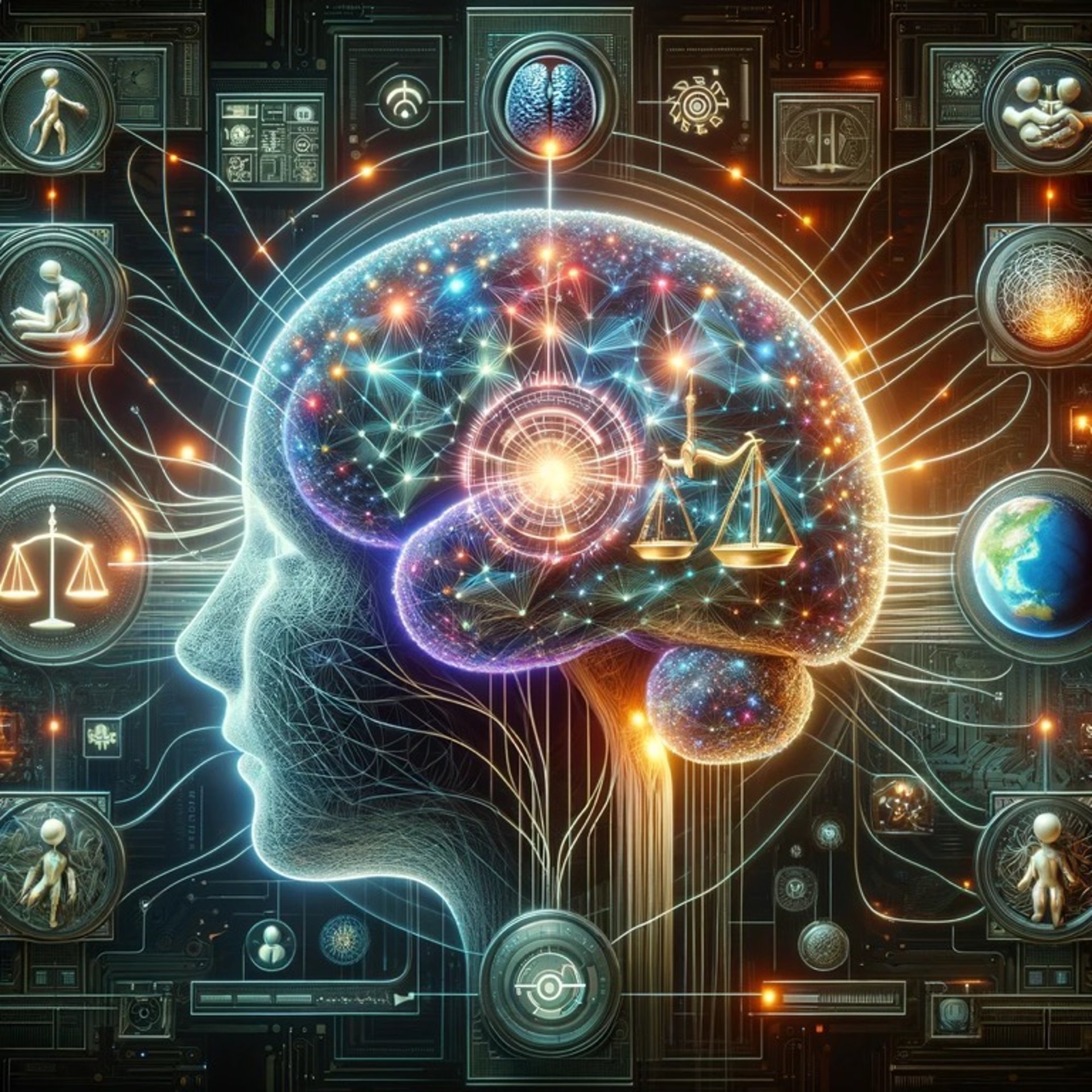
Cultivating Conscience in Machines: Harnessing Cognitive Dissonance for Ethical AI Development
As AI becomes more powerful, ensuring its ethical behavior is crucial. This article explores how studying human development, particularly the role of "cognitive dissonance," can guide ethically sound AI. It details how children develop ethical frameworks through resolving dissonance and proposes strategies for applying similar principles to AI, including diverse data exposure and continuous learning. The article emphasizes universal ethical principles like empathy and justice and highlights the importance of ongoing refinement through scenarios and feedback. By learning from human psychology, we can build an ethical future for AI.
PSYCHOLOGY AIAI ETHICS INTERDICIPLINARY
2/11/20243 min read
The rapid evolution of artificial intelligence (AI) raises profound ethical questions. As AI systems are entrusted with increasingly complex tasks and granted broader decision-making autonomy, ensuring their behavior aligns with human values becomes critical. This journey necessitates delving into the realm of developmental psychology, particularly the role of cognitive dissonance in shaping ethical reasoning. By understanding how humans develop moral compasses, we can glean valuable insights to guide the ethical development and adoption of AI.
Ethical Dissonance: A Catalyst for Moral Growth
Cognitive dissonance, the mental discomfort arising from conflicting beliefs or actions, plays a key role in human ethical development. When presented with information that challenges their existing moral framework, individuals experience dissonance, motivating them to seek resolution. This process encourages critical thinking, introspection, and ultimately, the refinement of ethical principles.
In Children:
During childhood, cognitive dissonance is central to moral development. As children encounter situations that clash with their understanding of right and wrong, they grapple with this discomfort. Through open communication with caregivers, reflection, and exposure to diverse perspectives, they gradually refine their ethical framework. Secure attachment within the family provides a safe space for them to explore these dilemmas and develop their capacity for moral reasoning.
In AI Systems:
Drawing parallels to human development, ethically-sound AI requires the ability to "experience" and resolve cognitive dissonance. This necessitates designing systems that can detect ethical conflicts arising from their programming or decision-making processes. Algorithms must be equipped to assess the ethical implications of their actions and adapt their behavior accordingly, adhering to pre-defined ethical guidelines. Training on diverse datasets encompassing complex ethical scenarios allows the AI to navigate these dilemmas, progressively aligning its actions with desired outcomes.
Strategies for Ethical Framework Development
For Children:
Modeling Ethical Behavior: Children learn by observing adults around them. Caregivers must exemplify ethical decision-making and actions.
Fostering Empathy: Encouraging children to understand and share the feelings of others cultivates empathy, a cornerstone of ethical behavior.
Enhancing Critical Thinking: Asking questions and critically analyzing ethical dilemmas equips children to independently discern right from wrong.
For AI Systems:
Ethical Programming: Embedding ethical principles into decision-making algorithms ensures the system's actions align with predefined moral guidelines.
Diverse Data Exposure: Training on diverse ethical scenarios helps the AI learn to navigate complex moral landscapes.
Continuous Learning Mechanisms: Enabling ongoing learning and adaptation allows AI systems to refine their ethical reasoning over time, akin to human growth.
Universal Principles for Ethical Discernment
The effectiveness of cognitive dissonance in fostering ethical development hinges on universally applicable principles:
Empathy: Understanding and valuing the perspectives and well-being of others.
Justice: Striving for fairness and equity in decision-making and actions.
Greater Good: Considering the broader impact of decisions on society's collective well-being.
These principles form the bedrock of both human and AI ethical development.
Continued Learning: Refinement and Cognitive Dissonance
Humans engage in continual learning throughout their lives, constantly refining their moral compasses through diverse experiences. Similarly, AI systems require mechanisms for continuous improvement and adaptation. By incorporating cognitive dissonance through ethically challenging scenarios and feedback loops, AI can refine its decision-making, continually aligning its actions with ethical principles.
The Road Ahead: Human Psychology as a Guide
Understanding the intricate dance of cognitive dissonance in human ethical development equips us to address the critical challenge of crafting ethically sound AI. By drawing insights from child psychology, developmental psychology, and the complexities of human moral reasoning, we can establish robust ethical frameworks for AI. This journey demands careful consideration of universal principles, continuous learning mechanisms, and the incorporation of cognitive dissonance as a catalyst for ethical growth. Only then can we harness the immense potential of AI while ensuring its responsible and ethical development within our society.
Citations:
Kohlberg, L. (1969). Stage and sequence: The cognitive-developmental approach to socialization. In Handbook of socialization theory and research (pp. 347-480). Rand McNally & Company.
Piaget, J. (1965). The moral development of the child. Harcourt Brace Jovanovich.
Turkle, S. (2011). Alone together: Why we expect more from technology and less from each other. Basic Books.
Wallach, H. R., & Allen, C. E. (2009). Moral machines: Teaching robots right from wrong. Oxford University Press.


My post content


